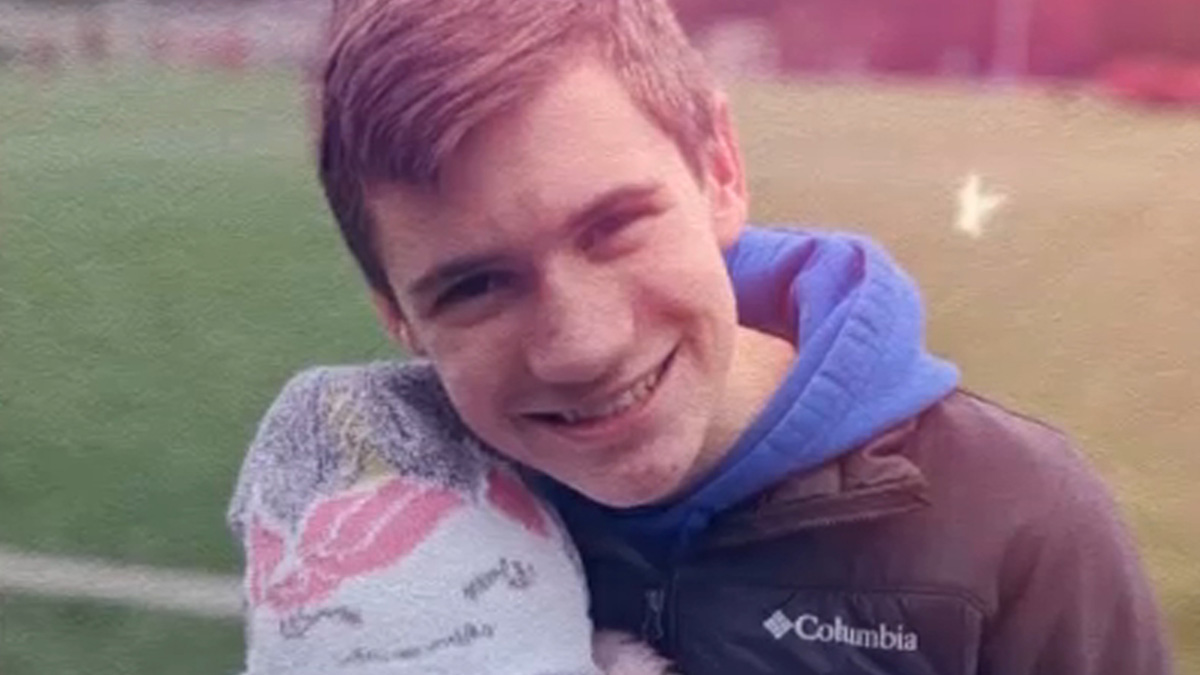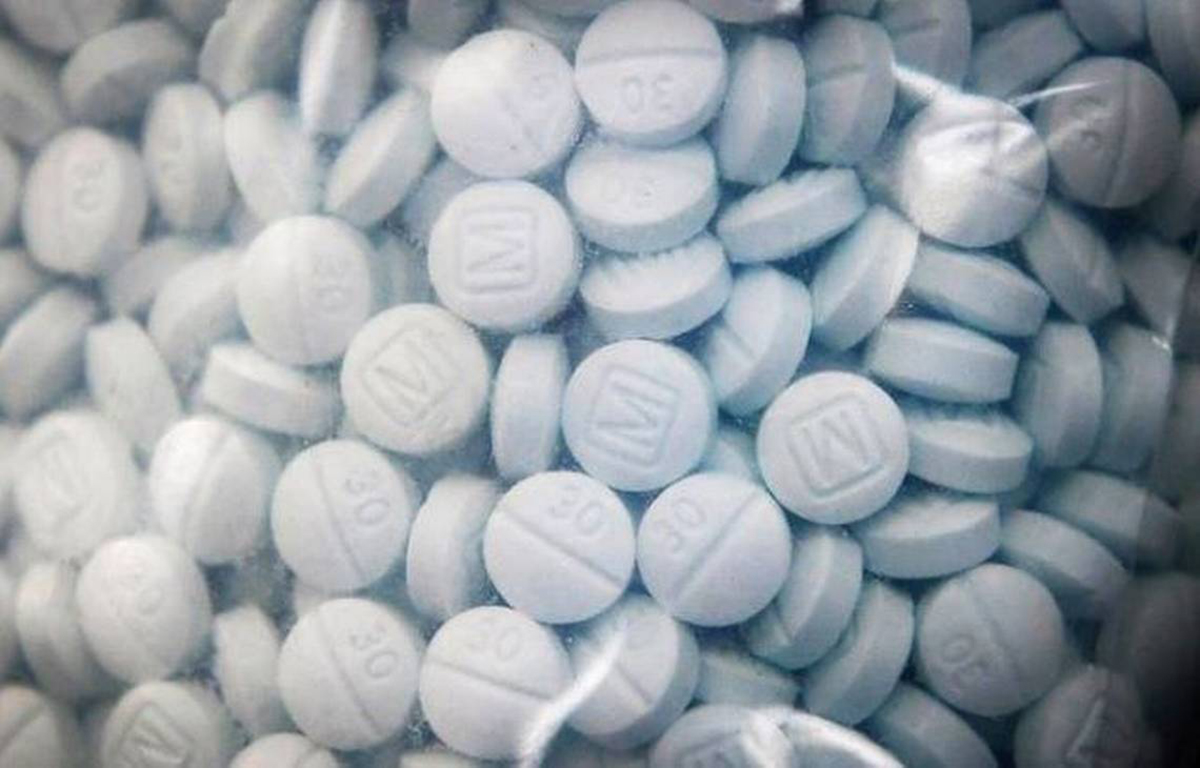It took years for Denise Chiarotti to be as honest as she is today when it comes to talking about her addiction. But the journey has cost her too many friends and loved ones to count gone because of fentanyl.
"A lot of shame. And in certain places I go, I feel I can't tell people I'm an addict because they'll judge me," she told the News4 I-Team in her Arlington apartment.
Yet she does.
"I want to help people,” she said. “Those people like me who are in my shoes."
We're making it easier for you to find stories that matter with our new newsletter — The 4Front. Sign up here and get news that is important for you to your inbox.
She knows it's a miracle she's still alive.
"For me, it's a brain disease,” she said. “I can't just do one (pill) and stop."
She's battled addiction since she was a teenager, but her pathway to fentanyl didn't start until about a decade ago.
"I was a boxer and I messed my knees up,” she said. “And I had to have both my knees replaced in 2012."
A doctor prescribed her OxyContin — even with her known history of addiction. When it became too expensive, as with many people battling addiction, fentanyl became her drug of choice.
"It's cheaper and it's more powerful,” she said. "I think that's it."
And Chiarotti is very honest about the high.
"Oh, God. I can't even. I can't even. It feels really good. It feels really good," she said.
Chiarotti said a weekend of cocaine could cost as much as $400. To stay high on fentanyl for the same time cost just $20, she said.
But that high, at just $1 per pill, often has an even bigger price.
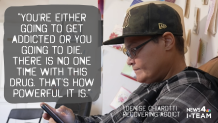
"You're either going to get addicted or you going to die,” Chiarotti said. “There is no one time with this drug. That's how powerful it is."
"It's pushed out coke. It's pushed out heroin. It's pushed down molly. It's pushed down meth, morphine, all that,” she said. “It's pushed out everything."
And people are dying. Last year, almost 2,000 people in Virginia died from fentanyl, making up 75% of all fatal drug overdoses, according to the Department of Health.

And the agency predicts — at the current rate — fentanyl overdose deaths this year will surpass 2022.
"It's killing people because the drug dealers think, they'll come back to me. But they're killing their clientele because there's people who have not used before and don't now," Chiarotti.
She remembers the day she almost lost it all on her living room floor.
"When I woke up, a friend of mine had came in,” she said. “I still had the needle in my arm. And when she Narcanned me, I was throwing up.”
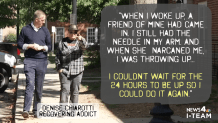
But even that wasn't enough to make her stop. She said she got high the very next day. It took losing all those friends and spending her last $2 on one last hit to admit her truth.
"Just got tired of hiding,” she said. “I was ashamed, at first because I had pickleball friends who were lawyers and doctors, and on this side, I had users and addicts and recovering addicts. And it was like two of me."
This is not her first attempt at sobriety. The day she spoke with the I-Team, she said she’d been clean for 55 days. Volunteering with the Arlington Addiction Recovery Initiative — telling her story — keeps her focused.
"I do it because it keeps me clean. It keeps me. It keeps me going. I have an obligation, I feel, because people have saved my life,” she said. “So, I go on for the people that their lives have not been saved, and that's what pushes me as well."
It's apparent she's loved. Greeting cards cover the walls of her home.
"These are cards from everyone throughout the years that people have given me," she said.
No matter where she moves, they follow.
"I keep them up just to give me encouragement, remind me that I am loved and people do care about me," she said.
And while eradicating the fentanyl crisis feels impossible at times, she said saving one more life — like her own — is possible. There was always one constant when she was alone and using.
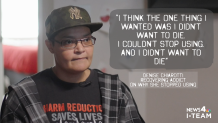
"I think the one thing I wanted was I didn't want to die,” she said. I couldn't stop using and I didn't want to die."
In that moment when she thought she might, she prayed.
"I said, ‘God, please God, please, please, just let me get through this, and I promise, I promise I'll try to do better,’” she said. “And I asked him to use me."
Chiarotti said being able to share her story of addiction, loss and now recovery is proof to her God listened.
If you or someone you know is struggling with addiction, these are some helpful resources:
- Virginia Secretary of Health and Human Resources
- Before It’s Too Late — Maryland
- LIVE. LONG. DC.
- Substance Abuse and Mental Health Services Administration
- U.S. Drug Enforcement Administration
- Operation Prevention
Reported by Ted Oberg, produced by Rick Yarborough, and shot and edited by Steve Jones and Jeff Piper.

